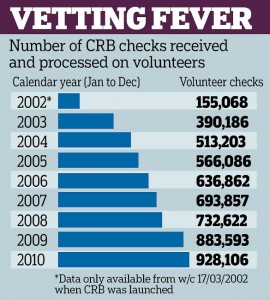Regulated activities are the activities that the DBS can bar people from doing. It is a criminal offence for a barred person to seek to work, or work in, activities from which they are barred. It is also a criminal offence for employers or voluntary organisations to knowingly employ a barred person in regulated activity.
The CQC provides guidance on which activities are considered regulated.
This is their quick reference guide, showing how regulated activities and service types are likely to link to each other. It is important to review the regulated activities
regulations, decide which regulated activities your service carries out, and then apply to register for those activities. If you carry on a regulated activity without being registered for it, you may be prosecuted and liable to a fine.
The Department of Health has also published information on the scope of regulated activity in relation to adults.
